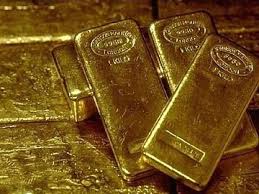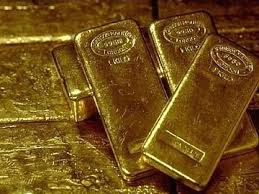
After Venezuela sold $1.7 billion of worth of Gold in the first quarter of the year to repay debts, the country’s reserves of the precious metal have plunged to their lowest level on record. Venezuela is struggling to feed its population as the country grapples with an economic crisis.
The Opec member sold over 40 tonnes in February and March, according to IMF data and its gold reserves have dropped almost a third over the past year. The country’s total reserves, which fell to a low of $12.1 billion last week, is composed of almost 70 percent of gold reserves.
Years of mismanagement and, more recently, depressed prices for oil have hit the country hard even though Venezuela has larger crude reserves than Saudi Arabia. 95 percent of its export earnings is contributed by oil. Declining oil output is likely to take a further toll on the economy despite the recent price rebound in the global petroleum market.
After a 5.7 percent contraction in 2015, the economy will shrink 8 percent this year, and 4.5 percent in 2017, forecasts the IMF. Fueled by printing money to fund a fiscal deficit estimated at about 20 percent of gross domestic product, inflation is forecast to exceed 1,642 percent next year.
According to IMF data, Venezuela began selling its gold reserves in March 2015. According to the World Gold Council, Venezuela has the world's 16th-biggest gold reserves and totals at roughly 367 tonnes. The data showed that while Venezuela was selling gold, countries like China and Russia both added to their gold holdings this year.
There has been a 15 percent rise in gold this year. Through a complex agreement with Citi, Venezuela's central bank swapped part of its gold reserves for $1 billion in cash last year.
The late president Hugo Chávez had had directed the central bank to ditch the US dollar and start amassing gold instead with the aim of freeing Venezuela from the "dictatorship of the dollar". Chávez brought most of the gold stored overseas back to Caracas in 2011 as a safeguard against market instability.
Indication that the country is desperate for cash is signified by the gold swap. According to Russ Dallen of investment bank Caracas Capital Markets, more than $6 billion in principal and interest payments this year is to be repaid by Venezuela and its national oil company PDVSA.
Sources have been quoted in media stating that PDVSA is attempting to restructure some of its debt amid fears of default.
Venezuela has reached a deal with its main financier China to extend loans, and that he would further cut imports — even if shortages of basic goods are ravaging the country, Miguel Pérez Abad, Venezuela's economic tsar, told news agencies this month in an attempt to reassure investors.
"We have a cash flow problem, but we have sufficient assets for the short-term and will reprofile the debt levels in an intelligent manner. There are various scenarios, and all of the proposals are extraordinary for the bondholders. They have the absolute assurance that their securities are guaranteed," Mr Pérez Abad told Bloomberg.
"We consider that the payments of external debt is a priority for the executive", said Ecoanalítica, a Caracas-based consultancy in a note.
(Source: www.cnbc.com)
The Opec member sold over 40 tonnes in February and March, according to IMF data and its gold reserves have dropped almost a third over the past year. The country’s total reserves, which fell to a low of $12.1 billion last week, is composed of almost 70 percent of gold reserves.
Years of mismanagement and, more recently, depressed prices for oil have hit the country hard even though Venezuela has larger crude reserves than Saudi Arabia. 95 percent of its export earnings is contributed by oil. Declining oil output is likely to take a further toll on the economy despite the recent price rebound in the global petroleum market.
After a 5.7 percent contraction in 2015, the economy will shrink 8 percent this year, and 4.5 percent in 2017, forecasts the IMF. Fueled by printing money to fund a fiscal deficit estimated at about 20 percent of gross domestic product, inflation is forecast to exceed 1,642 percent next year.
According to IMF data, Venezuela began selling its gold reserves in March 2015. According to the World Gold Council, Venezuela has the world's 16th-biggest gold reserves and totals at roughly 367 tonnes. The data showed that while Venezuela was selling gold, countries like China and Russia both added to their gold holdings this year.
There has been a 15 percent rise in gold this year. Through a complex agreement with Citi, Venezuela's central bank swapped part of its gold reserves for $1 billion in cash last year.
The late president Hugo Chávez had had directed the central bank to ditch the US dollar and start amassing gold instead with the aim of freeing Venezuela from the "dictatorship of the dollar". Chávez brought most of the gold stored overseas back to Caracas in 2011 as a safeguard against market instability.
Indication that the country is desperate for cash is signified by the gold swap. According to Russ Dallen of investment bank Caracas Capital Markets, more than $6 billion in principal and interest payments this year is to be repaid by Venezuela and its national oil company PDVSA.
Sources have been quoted in media stating that PDVSA is attempting to restructure some of its debt amid fears of default.
Venezuela has reached a deal with its main financier China to extend loans, and that he would further cut imports — even if shortages of basic goods are ravaging the country, Miguel Pérez Abad, Venezuela's economic tsar, told news agencies this month in an attempt to reassure investors.
"We have a cash flow problem, but we have sufficient assets for the short-term and will reprofile the debt levels in an intelligent manner. There are various scenarios, and all of the proposals are extraordinary for the bondholders. They have the absolute assurance that their securities are guaranteed," Mr Pérez Abad told Bloomberg.
"We consider that the payments of external debt is a priority for the executive", said Ecoanalítica, a Caracas-based consultancy in a note.
(Source: www.cnbc.com)





